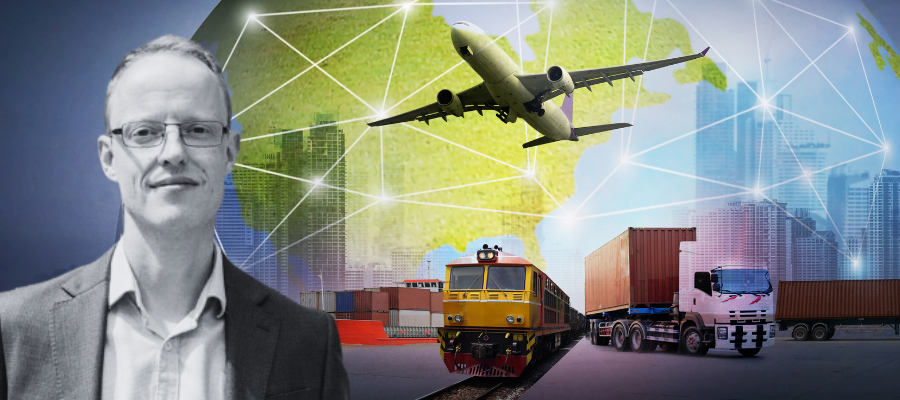🕒 Article read time: 2 minutes
Decarbonising the right way

As the logistics industry continues to make further developments in exploring more time- and cost-efficient technologies, transporting goods in urban areas – both in terms of supplying retail, industry, or trade, as well as end customers – has progressed and undergone a radical shift in recent years.
The need to decarbonise across all sectors remains high on the agenda for logistics businesses, but it is important to note that a singular solution will not work for all modes and locations.
DIFFERENT APPROACHES
“Towns and cities across the UK have committed to different approaches for decarbonising their operations such as freight consolidation, cargo bikes and autonomous/remote deliveries,” says Jonathan Walker, Head of Cities and Infrastructure at Logistics UK. “And while government policy has struggled to keep pace with new innovations and find the most sustainable and effective option, industry has adapted.
“Companies are beginning to transition, or have already transitioned, their vehicle fleets to the greener alternative of electric vehicles (EVs), and warehousing and distribution centres are implementing automated robots to optimise the use of packaging materials, improve shipping efficiency and reduce costs.”
Currently, many local authorities and agencies are actively exploring the use of alternatives to internal combustion engine vans and lorries within cities, including cargo bikes and other light, zero-emission vehicles.
LONDON LEADING
As we see so often in urban policy, London is furthest down the path to decarbonisation of operations.
In response to industry trends, Transport for London (TfL) published its Cargo Bike Action Plan in March 2023 that set out how cargo bikes will become a viable option for last-mile deliveries.
The strategy focuses on three key areas that require attention to promote and enable the growth of cargo bikes; the infrastructure required for the bikes, safety and training and behaviour change.
“Where appropriate, cargo bikes can reduce van delivery and service trips across London as they deliver considerable carbon emission and air pollution savings, contributing to healthier streets,” says Walker.
“Although cargo bikes create great opportunities for reducing CO2 tailpipe emissions and avoiding detrimental impacts on congestion and air quality, public bodies must recognise that they will only ever be part of the urban logistics fleet.”
Cargo bikes can carry up to 80kg, whereas a large battery electric panel van has a payload capacity of around 1,600kg. This indicates that one van can carry the same load as approximately 20 cargo bikes.
MICRO CONSOLIDATION
A more practical solution to decarbonise in urban logistics is utilising the number of micro-consolidation centres available, as they allow for vehicles to travel fewer miles between deliveries.
“This is very beneficial for electric vehicles as they have a shorter mileage range,” continues Walker, “and so are often better suited for urban logistics rather than rural areas that cover longer distances.
“Research published in Logistics UK’s Logistics Report 2023 shows that London is the most congested city in the world, with the average driver losing 156 hours due to congestion in 2022. It is therefore crucial that small pockets of land in the centre of our cities are safeguarded for micro-consolidation and EV charging to ensure this method remains sustainable and decarbonisation friendly.”
INCENTIVISING INNOVATIONS
Logistics UK believes that national and local policies should incentivise innovations that meet the twin challenges of decarbonisation and efficiency within the sector, while at the same time not unfairly penalising or disadvantaging existing operators.
“Any new potential policy landscape may need a conversation between customers and operators,” insists Walker. “If restrictions continue to tighten, the on-demand logistics we have all become familiar with will be more challenging, though may bring significant environmental and efficiency benefits.
“However, we must also remember that our ever-growing and changing urban environment will always need a supply of materials, which can only be provided by heavy vehicles. Policy must reflect this and not impose unfair costs on operators.”
Logistics businesses are committed to meeting the 2050 net zero deadline. However, more support is vitally needed through tax allowances for capital expenditure on green infrastructure as well as longer-term certainty on grants for logistics businesses to develop future reliable investment plans.
*www.logistics.org.uk/campaigns
Published On: 06/07/2023 12:00:00

Comments Section
If you are a Logistics UK member login to add comments.